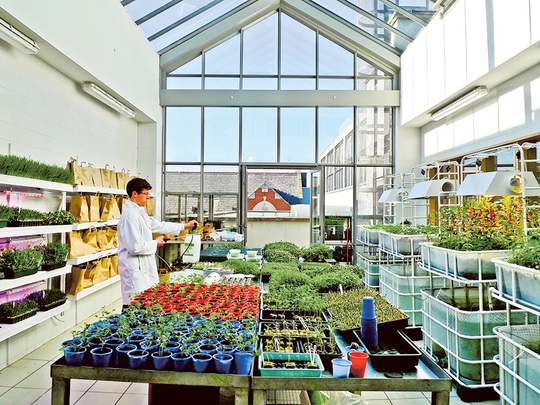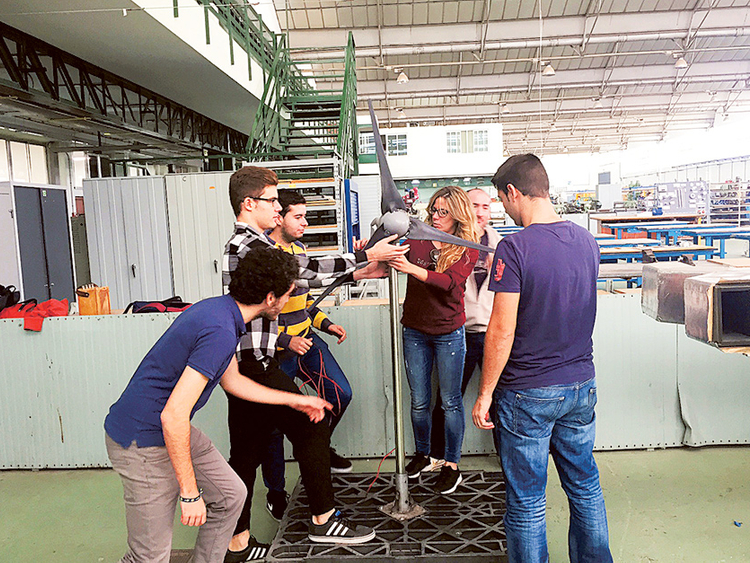
Abu Dhabi: Nine schools from around the world are vying to be selected as winners of the prestigious Zayed Future Energy Prize, which will announce its results during the Abu Dhabi Sustainability Week next month (January 2017).
The prize will allow three schools — one each from Oceania, Americas and Europe — to work towards their water and energy efficiency goals, the organising committee for the Prize told Gulf News.
The Prize, which has been awarded in the Global High Schools category since 2012, has already empowered 24 schools around the world to promote training and research in sustainability and clean energies. These schools have together reduced 1,000 tonnes of carbon emissions, benefiting 37,000 people in surrounding communities.
To be in the running for the award, schools submit a detailed project proposal that includes measurable initiatives to promote renewable energy and sustainability.
This year, a secondary school in the Polynesian island state of Samoa, Aana 2 College, has announced plans to build a bio-digester if it can win the Prize. Students will install, operate and maintain the system, which will reuse local farming waste in a bid to generate biogas energy. Students can then play an active role in selling this energy.
Huonville High School, another school competing in the Oceania region, is located in the Australian island state of Tasmania. It enrolls high school students in a rural community in Huonville, and hopes to teach them sustainable methods in forestry, aquaculture and agriculture.
“I think our project will impact the values of the whole community and their knowledge towards sustainability. I think it will inspire other community groups, our local primary schools, businesses and families to join the community action to tackle sustainability. The project has already had a massive impact on my family who now know how important this area is and how sustainability can make dramatic improvements to our lifestyles,” said Toby Thorpe, student and team leader for the project.
At the Sangam Sadhu Kuppuswamy Memorial College in Fiji, innovators hope to use the award to change from fluorescent to energy-efficient LED lamps, switch three-phase energy guzzling machines to single-phase, and install a 40-kilowatt solar photovoltaic plan to pump water for washrooms and playgrounds.
Three other schools have also been shortlisted in Europe, two of which are in Spain.
In Valencia, IES Cotes Baixes hopes to have its vocational training students build a multipurpose classroom, which would include a 10-metre wooden frame and a spherical dome.
“Our project will enhance the local economy and will focus the attention on more sustainable materials and energies. Many little local actions like this will mean a better global environment and quality of life,” said Tino Bernabeu, a student at the school.
Escuelas San Jose, another Spanish vocational training institute, wants to use the Prize to help its special needs students gain hands-on experience in mounting a 1,311-kilowatt per month photovoltaic system. The students would also design a charging space for electric batteries, a controls system, and install LED lights that could reduce energy consumption by 86 per cent.
Belvedere College, a school for boys in Dublin, Ireland, wants to set up a full-size laboratory to produce food in an urban setting. This lab would use an aquaponics system watered with harvested rainwater and be powered by an off-grid 6.24-kilowatt photovoltaic system. In turn, students would learn about water and energy sustainability in a hands-on manner.
“In the future, urban farming could be an important part of the solution to food sustainability issues and the addition of renewable energy to the project would show how two sustainability issues are really interdependent,” said Barry Heneghan, a student at the college.
In the Americas category, a school for low-income children in the Brazilian city of Taquarituba, the Escola Estadual Dimas Mozart e Silva, hopes to become self-sustaining using the Prize funds. It would install solar panels and a smart carpet to generate electricity, switch to LED lighting, and fit sensors on water taps to reduce excessive consumption.
In Mexico, the Escuela Secundiria Tecnica, a public technical school that serves an economically disadvantaged area, wants to set up a solar photovoltaic system to completely power the school campus. It also hopes to treat all grey water, install a green roof and construct greenhouses to grow produce.
Solar photovoltaic installation is also a goal for the Unidad Educativa Sagrado Corazón school in Bolivia. The school hopes to put up 100 panels to produce more than 37,000 kilowatt-hours of energy, and use the cost savings to start a theoretical and practical curriculum on renewable energy.













